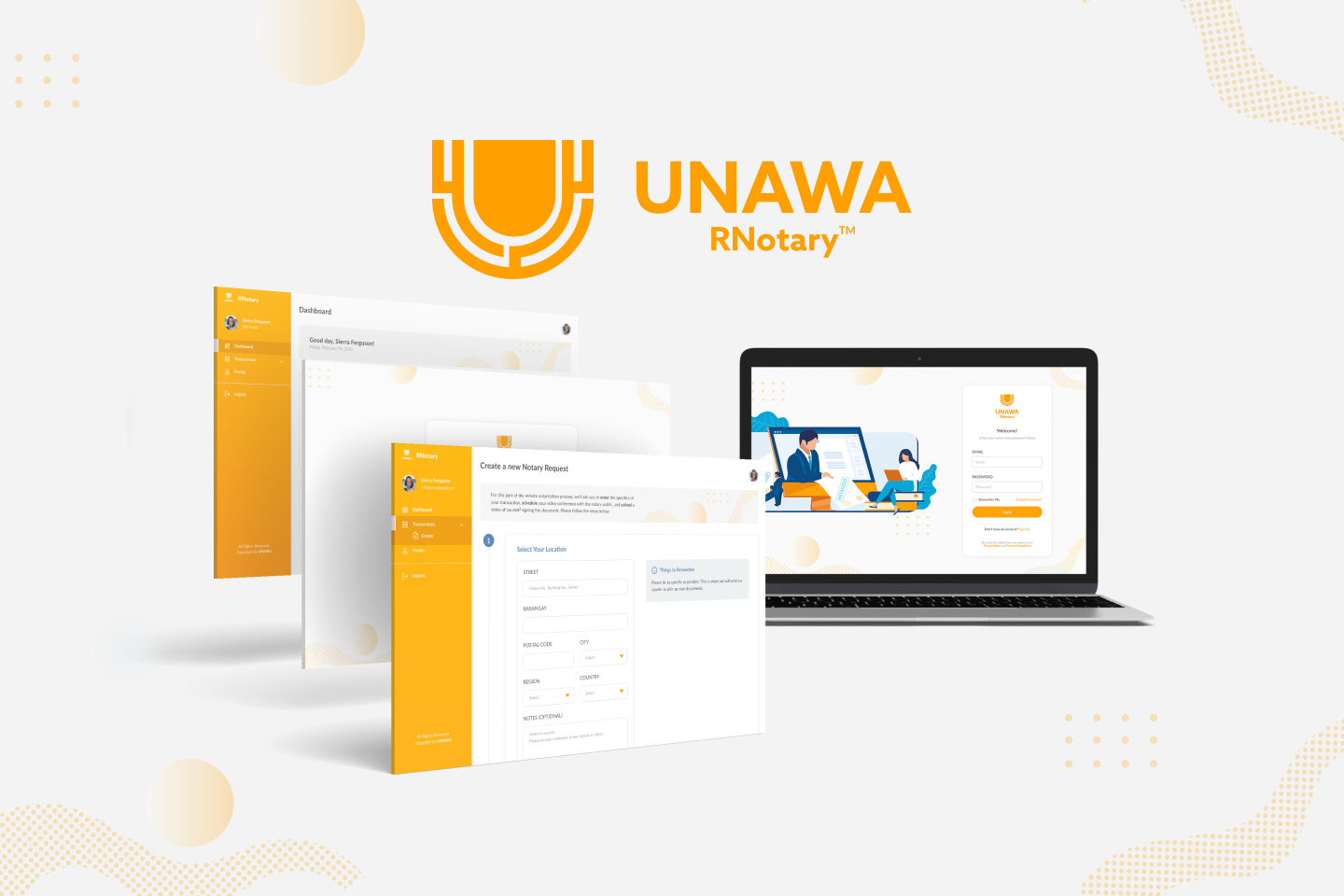
Extended lockdowns, health concerns and continuously evolving travel policies have made it challenging to physically execute critical documents related to deeds, contracts, and loans, to name a few. Fortunately, the situation has inspired innovative policies such as the Supreme Court of the Philippines’ 2020 Interim Rules on Remote Notarization of Paper Documents, which states that individuals need not physically go to a notary public’s office to have documents notarized. While institutions overseas fully remote notarizations, a mix of online and offline procedures are still required in the Philippine setting.
Pioneering Philippine regulatory technology (regtech) startup UNAWA makes remote notarization even more convenient by offering UNAWA RNotary. We’re answering your most frequently asked questions about this service.
A: There are certain documents that are required by law to be notarized. In addition, notarization has legal implications since it converts a private document into a public instrument. Under Philippine rules on evidence, once a document is notarized, this becomes proof of the document’s authenticity. Moreover, the Philippine public tends to rely on notarization as a source of legitimacy for their transactions even in cases where it is not required.

A: As mentioned, not all documents need to be notarized. But if it does need notarization, the same will be acceptable by RNotary. However, UNAWA’s RNotary Launch will be for single signatory documents only.
The next update will allow for more document types.
A: Not necessarily. A notarized document can still be nullified or invalidated in case there are errors in notarization, for example:
A nullified document will have no force or effect. This means you will need to hire a lawyer and even go to court to prove the document’s legitimacy. This can be costly and time-consuming.
A: With UNAWA’s RNotary service, you can have important documents notarized securely from the comfort and safety of your own home.
With UNAWA, notaries registered with the service have an existing notarial commission, ensuring that all notarized documents are valid and recorded.

A: RNotary’s remote notarization service entails three steps:
The following requirements must be prepared by the Principal or the person sending the document:
If you’re a company representative and are signing on behalf of a business entity or a corporation, please add the following requirements:
Once these requirements have been completed, RNotary will facilitate the pickup and delivery of the documents to be notarized.

A: While RNotary will be initially launched in Makati City, we are working towards making the service available in every city across the Philippines. Rates start at Php500 and will vary depending on the type of document to be notarized.
Visit the UNAWA RNotary website to create an account. Once logged in, simply follow the instructions to get your first document remote-notarized.
For notaries who want to be part of the service, please email us and we will get in touch for the next steps.

A: Yes, you can. Our TNVS partners and in-house couriers will be trained to handle important legal documents required for remote notarization.
UNAWA’s RNotary service is now available. Access a more secure way to get documents notarized